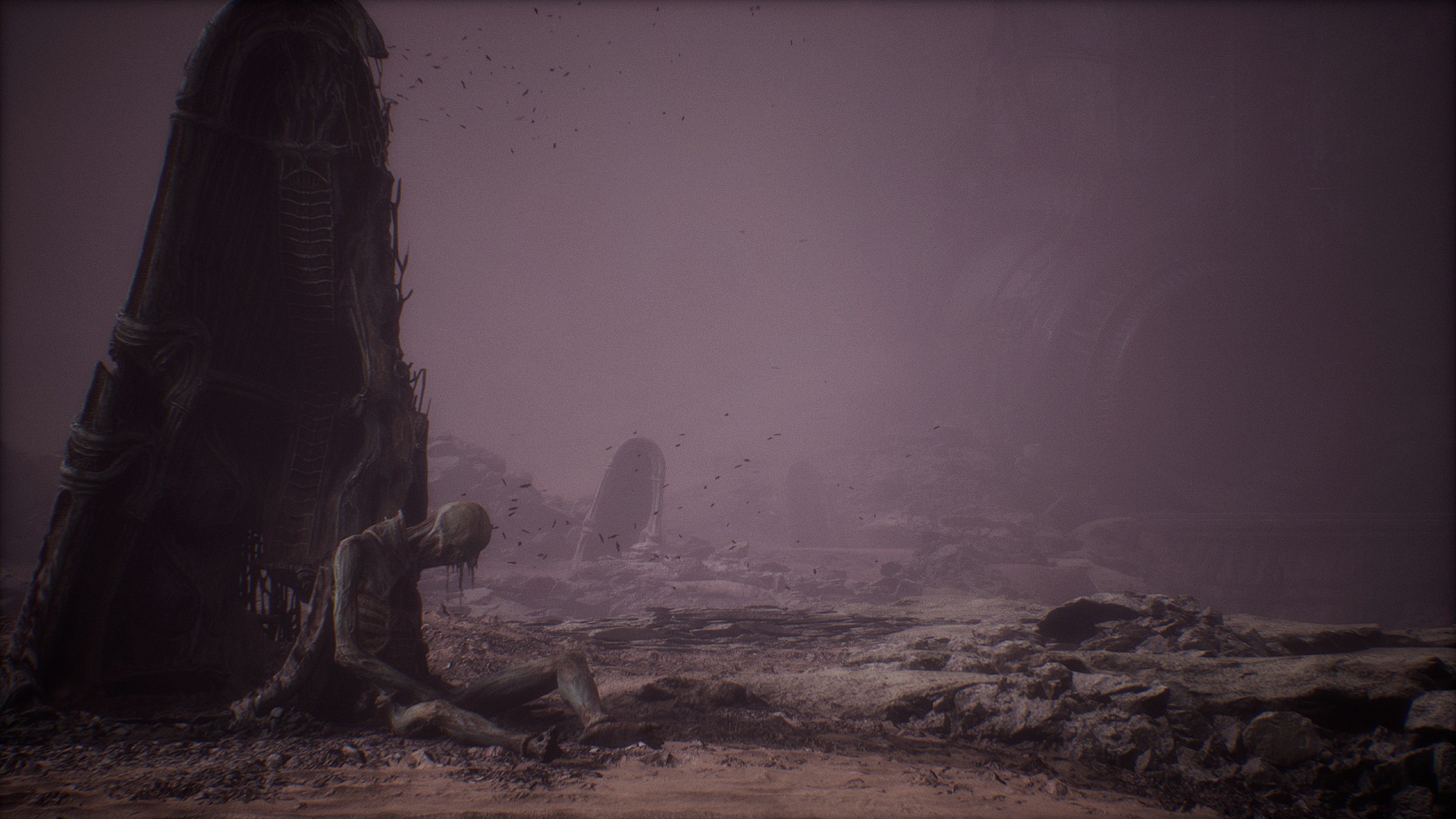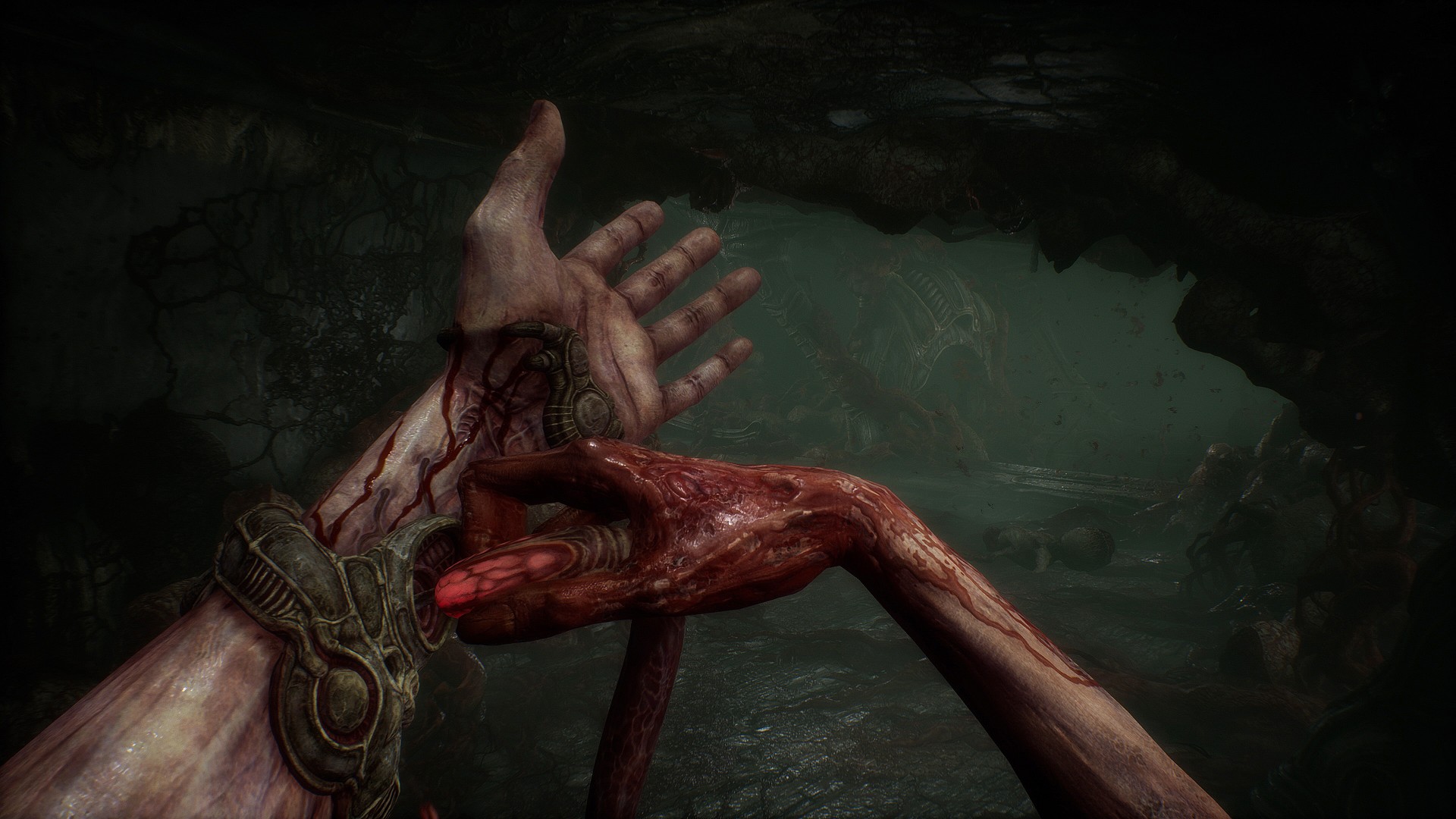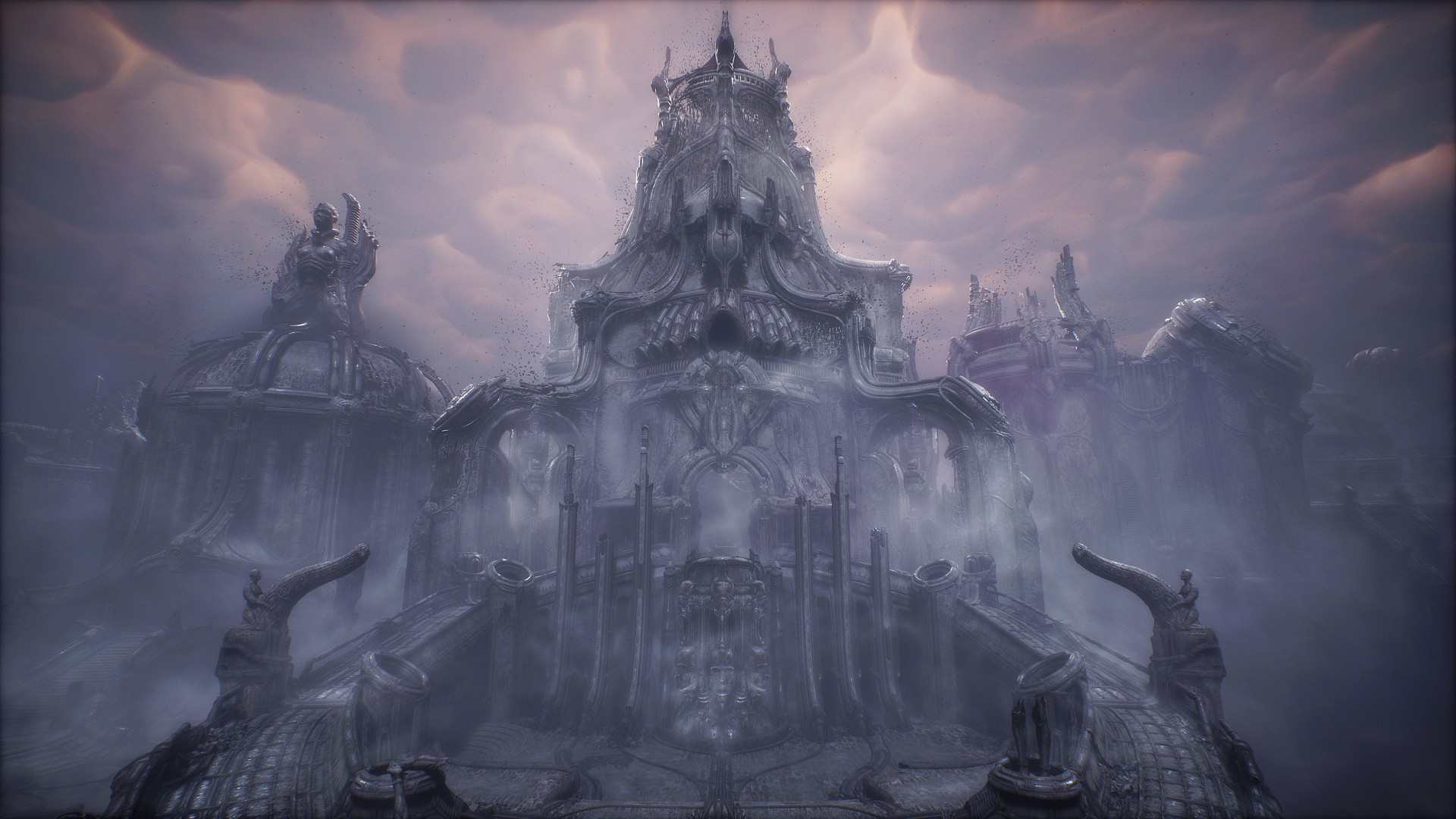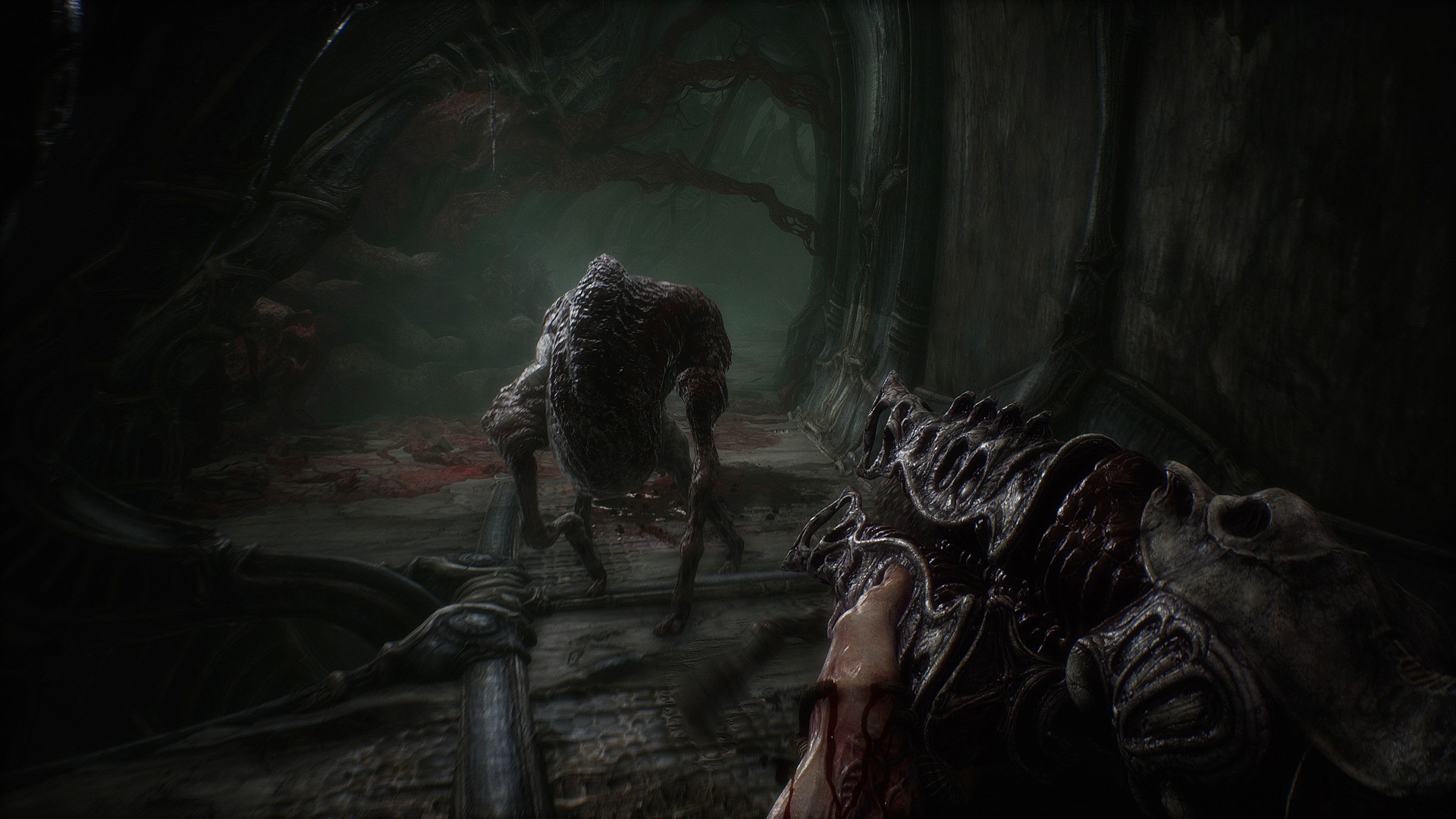Scorn is so gruesome it's infiltrated my real-life dreams
Horror adventure game Scorn is one of the darkest, weirdest, most unsettling horror games I've ever played

Scorn is weird. If you've been following Ebb Software and Kepler Interactive's upcoming atmospheric horror game to this point, you already know this. If you've spied any of the promotional material that's surfaced over the last nine years or so… you already know this. If you've ever heard the devs bill their game as a labor of love set in a "nightmarish universe of odd forms and somber tapestry", you, that's right, already know this. Before playing a 45-minute demo segment of Scorn at Gamescom, I already knew this. And yet, despite having seen the game's grotesque and unnerving H.R. Giger meets Zdzislaw Beksinski and H.P. Lovecraft-inspired world that's dripping with blood and gore several times in trailers and screenshots since late 2014, I still came away thinking: Scorn is really fucking weird.
It's been roughly one month since I played the demo segment of Scorn on the Koelnmesse show floor. And it's so weird that I'm still thinking about it today.
Hell's wrath


Scorn channels the work of H.R. Giger for a truly transcendental take on survival horror
Given everything we know about Scorn, from its grotesque visuals to its unsettling themes, its protracted development, and the fact it's run two Kickstarter campaigns over the last decade – one canceled in late 2014 due to lack of interest; another successfully funded to the tune of €192,487 (roughly the same in USD, as per today's exchange rates) in late 2017 – 'unorthodox' feels like an appropriate word to describe its execution and road to release. This billing might extend to the demo segment Ebb Software chose to show off Scorn with at Gamescom 2022, simply because it kicked off at the beginning of the game, and was therefore, I presume, slower-paced than later sections of its nightmare adventure.
Scorn, as Ebb Software has stated on a number of occasions, does not hold your hand, like, at all. No glowing beacons, no tutorials, nada. And so, while it was establishing itself early doors, I found myself wandering around its ghastly but admittedly gorgeous corridors – composed of skeletal stairways, walls that looked like they were adorned with stretched-skin, and the most hideous flesh-like contraptions that sounded positively hideous; activated by shoving your arms deep within them – pretty aimlessly, as I sought to learn the ropes.
Despite the controls menu noting words like 'fire' and 'aim', I spent the first half-hour of my time messing with disgusting gadgets and wrestling with head-scratching puzzles. One of these involved operating a huge robotic arm to shuffle stone balls around a wall-mounted board, akin to the sliding tile puzzles we might have found in our Christmas stockings as kids. Upon completion, I released a prisoner partially encased in one of the said stone balls, before using a different contraption to shove him into a train cart and crush his skull. Shortly after that, and I'd ripped his right arm from his body, equipped the bloodied limb with a special amulet, and used the severed appendage to open a mechanical gate and access a once inaccessible area. Only once there, did I finally pick up a gun.
Uncompromising underworld

"When I say Scorn is weird, then, it's a compliment – but a compliment with qualifications."
I say gun, but this was more a two-handed, spring-loaded spike tool thingamajig, that reminded me of a cross between a fire poker and the wee litter pickers school janitors use to keep the playground tidy. Armed with this, I then spent the rest of my time with Scorn wandering around a network of catwalks and narrow channels, messing with yet more gruesome contraptions, and smashing up strange flying robots with huge light bulbs built into their fronts ends – a move that prevented them from spraying an unknown black liquid into the air.
As we've seen in its trailers and slices of in-game footage so far, Scorn appears to get hotter and heavier the deeper we wade into its twisted hellscape – with the protagonist wielding grizzly biomechanical shotguns, and taking on some pretty sinister-looking natives throughout its prospective seven to 10 hour run-time. I realize I barely scratched the surface during my short stretch of hands-on time with Scorn at Gamescom, but it left me suitably rattled nevertheless. Rattled enough that I'm still thinking about it several weeks on. Rattled enough that its contorted landscapes have genuinely infiltrated my real-life dreams. Like the works of Giger and Lovecraft that inspire it, Scorn feels deliberately obtuse and avant garde at times (I get that overbearing tutorials can smother players, for example, but even a morsel of a clue would have worked wonders on more than a couple of occasions), but this only serves to boost its intrigue.
Sign up to the GamesRadar+ Newsletter
Weekly digests, tales from the communities you love, and more
When I say Scorn is weird, then, it's a compliment – but a compliment with qualifications. Scorn looks gruesome, and sounds absolutely spectacular. Its puzzles are tough, doubly so without any signposting, and while I consider myself competent at puzzle games (although far from expert), I really struggled during one or two of its head-scratching set pieces. Imagine how dejected I felt, then, when a PR told me the devs had toned everything down for the Gamescom build; that some of the puzzles were "up to 10 times more difficult" beforehand.
As such, my advice to prospective players at this point would be to expect lulls between the game's more intense moments. This isn't a horror game as you're otherwise familiar with the genre, and as such, I don't think it'll be for every horror fan out there. But for those looking for something more thoughtful, more perverse, more psychologically taxing, and more stomach-churning with the scope to haunt your idle thoughts for weeks after playing, then Scorn will be right up your alley.
Scorn is due on October 21, 2022 for Xbox Series X and S (available day one via Game Pass), and PC.
Play the best horror games available now, and spend the rest of the day hiding behind the couch.

Joe Donnelly is a sports editor from Glasgow and former features editor at GamesRadar+. A mental health advocate, Joe has written about video games and mental health for The Guardian, New Statesman, VICE, PC Gamer and many more, and believes the interactive nature of video games makes them uniquely placed to educate and inform. His book Checkpoint considers the complex intersections of video games and mental health, and was shortlisted for Scotland's National Book of the Year for non-fiction in 2021. As familiar with the streets of Los Santos as he is the west of Scotland, Joe can often be found living his best and worst lives in GTA Online and its PC role-playing scene.


